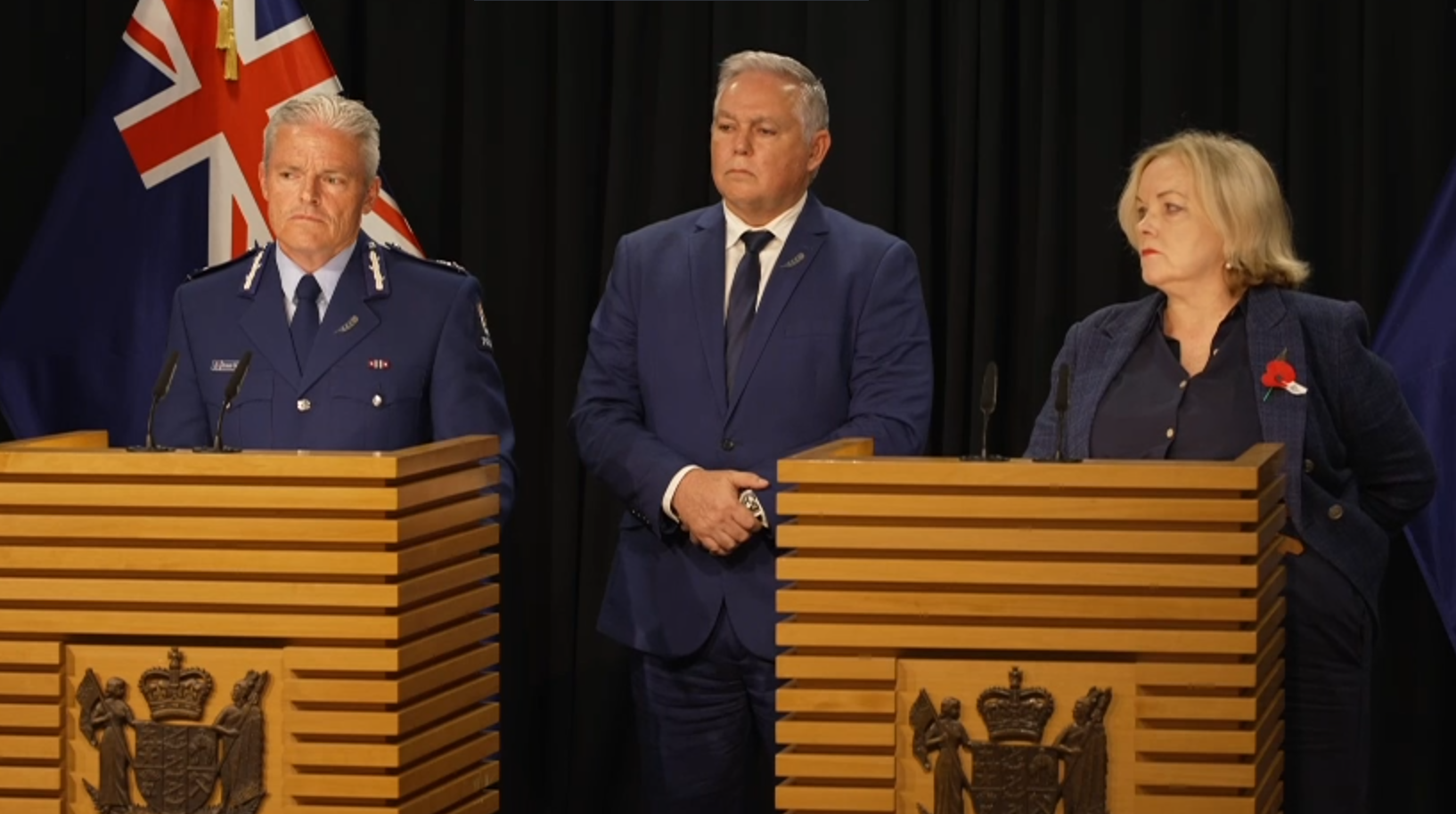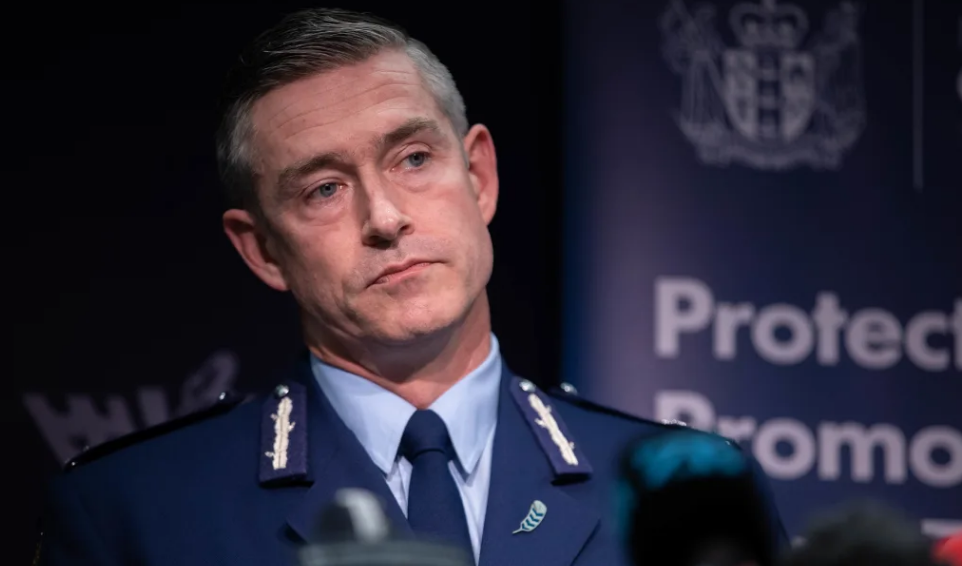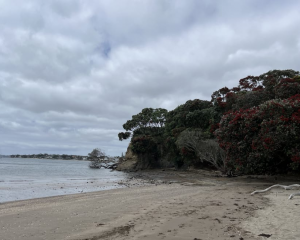
An investigation into police handling of complaints against the former Deputy Police Commissioner, released today, is critical of the actions of former Commissioner Andrew Coster.
McSkimming resigned as the country's second most powerful officer in May this year amid separate investigations by watchdog the Independent Police Conduct Authority and police.
The IPCA's report says when police did eventually refer a woman's claims to the authority several months after it was recommended they do so, senior police attempted to influence the investigation.
Public Service Minister Judith Collins said the report's findings were "extremely concerning and disappointing" and it found serious issues within the former police executive.
Speaking to media this evening, Collins said it was "very clear" the woman at the centre of the complaint was failed by senior police.
"What is also clear is that this cannot continue to happen."
She described the events as a "massive failure of leadership".
"This could have been avoided if senior police at the time had acted with integrity, called out bad behaviour when they saw it, and promptly investigated allegations when they were made."
She said the government was "acting decisively" in response and will implement the strongest statutory oversight mechanism available, an Inspector General of Police. The public needed to have trust in the police and leaders in the public sector.
"And they have a right to expect that when things go wrong, people are held to account, and that is what we are doing."
Police Minister Mark Mitchell said he expected police to uphold the "highest levels of integrity, transparency and accountability".
"The report highlights significant flaws in the decision-making, judgement and actions of a group of individuals, including those at the top of the previous police executive.
"Their actions have raised serious concerns about integrity and culture within the then executive."
Mitchell said at the centre of this, a woman had been "let down by the former police executive and the system".
"I cannot express how frustrated and disappointed I have been since becoming aware of the situation."
The ministers said the report raised questions around whether there was "sufficient independent oversight" of the police to prevent these issues happening again.
It also raised questions about "probity checking" of McSkimming by the Public Service Commission (PSC) when he was appointed Deputy Police Commissioner in 2023.
The matter was "picked up" during the Police Commissioner recruitment process in 2024, and McSkimming was suspended, then resigned.
Collins said New Zealanders will understandably have questions around "how McSkimming was able to be considered for roles at the highest level of police given what has come to light." She said the PSC was taking these concerns "very seriously".
The IPCA made 13 recommendations for police and two for the government regarding police oversight.
Collins said all had been accepted.
"It is imperative New Zealanders have confidence in our police. That is why we are choosing the most robust level of oversight available to the government."
Mitchell said police have accepted all the recommendations in the report, including "strengthening integrity and conduct processes, amending the code of conduct to provide for mandatory reporting, and refreshing integrity training."
He said it was important to emphasise that the report's findings should not be seen as a reflection on the police service as a whole.
"I commend the staff highlighted in the review as having showed exceptional moral courage. They have done themselves, their colleagues and their organisation proud. It is imperative New Zealanders have trust and confidence in the police. That's why the government is taking these findings extremely seriously."

Coster put on leave
Andrew Coster has been placed on leave from his role as chief executive of the Social Investment Agency, following the release of the IPCA report.
The agency is tasked with working across government departments, using data to prompt early intervention and deliver results and reports to the Minister for Social Investment.
Coster took over from Mike Bush as Police Commissioner in 2020. In July last year, he indicated he would not seek a second term. He took on the role as Secretary for Social Investment in November.
Collins said it was agreed between Coster and Public Service Commissioner Sir Brian Roche that Coster would be on leave while Sir Brian undertook his own "investigation".
She said the report showed a "massive" failure of leadership, and while it was now an employment matter, the report spoke for itself.
"If this was me being named in this report, I would be ashamed of myself. And I think that's what I can say. I would be deeply ashamed."
A spokesperson for Roche said it would be inappropriate to comment on any employment matters.
Social Investment Minister Nicola Willis said she was "shocked and appalled" by the IPCA report's findings.
"I have conveyed my views to Public Service Commissioner Brian Roche. The matter now sits with him as Mr Coster's employer."

'Inexcusable conduct': Police Commissioner's statement
Police Commissioner Richard Chambers says police showed a "lack of leadership" in how they responded to accusations of sexual offending by Jevon McSkimming. Shortly after today's report was made public, Chambers released this statement:
"The findings of the IPCA review into the Police handling of complaints against Jevon McSkimming show inexcusable conduct by former senior leaders of NZ Police.
The events and findings set out in the IPCA report made for appalling reading and showed a total lack of leadership and integrity at the highest levels of Police.
I was shocked by the report's account of departures in 2023 and 2024 from the expected processes for dealing both with sexual assault complaints and with investigations into police officers.
The usual integrity checks and balances were bypassed, there was interference from the highest levels, and the ambitions of a senior police officer were put above the interests of a vulnerable woman.
I am apologising to the woman at the centre of this for the repeated early failures in following the proper processes for investigating this matter by those at such a senior level of Police.
She was ignored and badly let down. That was unacceptable.
It was not until late 2024 that an investigation was set up to properly investigate those claims.
That should have happened from the start.
I want to acknowledge those senior police staff who did stand up and challenge what was happening here. I thank them for the courage, leadership, and integrity they showed in doing so.
The events in the report are a kick in the guts for the 15,000 women and men of NZ Police who turn up to work every day and night to serve New Zealanders and keep them safe.
That has angered me.
It was not those staff who were found wanting here. It was a failing of leadership.
The actions and attitudes set out in the report are inexcusable and show a disrespect and disregard for what NZ Police stands for.
The report is thorough and convincing, and I accept the recommendations and intent of them.
My leadership team will meet to develop a plan to address those recommendations.
The processes for complaints against senior Police leaders were too easily ignored or bypassed here, despite attempts by some staff to ensure they were adhered to.
That is of concern and I agree extra safeguards are needed.
I welcome the IPCA's recommendations and government decisions to achieve that.
Most of those involved in the report are no longer staff of NZ Police.
I have appointed an independent King's Counsel to undertake employment investigations where required.
The report's other recommendations are relevant to other work I already have underway to strengthen integrity.
I am currently undertaking an extensive refresh of the Police Executive and wider leadership, including the appointment of two statutory deputy commissioners and new assistant commissioners.
The IPCA recommendations to strengthen the role of the Integrity and Conduct Unit will form part of that refresh.
I have started revising the Police Code of Conduct, aimed at strengthening accountability.
I recently ordered an immediate uplift to the Police National Integrity Unit, adding six investigators.
That unit handles investigations into police staff.
Earlier this year, I also invited the Public Service Commission to conduct a Performance Improvement Review into NZ Police, focusing on integrity and conduct.
It is the first such review of NZ Police since 2012 and is aimed at positioning Police for the future.
The absolute worst outcome of this would be if anyone did not feel safe in reporting sexual assault to Police, or did not think Police would listen and investigate thoroughly.
I want to reassure you that is not the case.
What happened here will dismay and anger the dedicated specialist investigators around the country who put everything into their work trying to hold perpetrators of sexual violence to account and keep people safe.
I know some people will question whether Police have learned the lessons of the past after reading this report.
Over many years, Police has put a lot of resource and effort into developing and implementing very robust processes for dealing with sexual violence complaints.
Our specialist adult sexual assault teams are highly trained and dedicated.
One of the most disappointing things about this report was that a small group of senior leaders at that time elected to depart from those processes.
The attitudes on display here are not attitudes I have experienced among specialist investigation team staff, nor are they attitudes acceptable to me."












